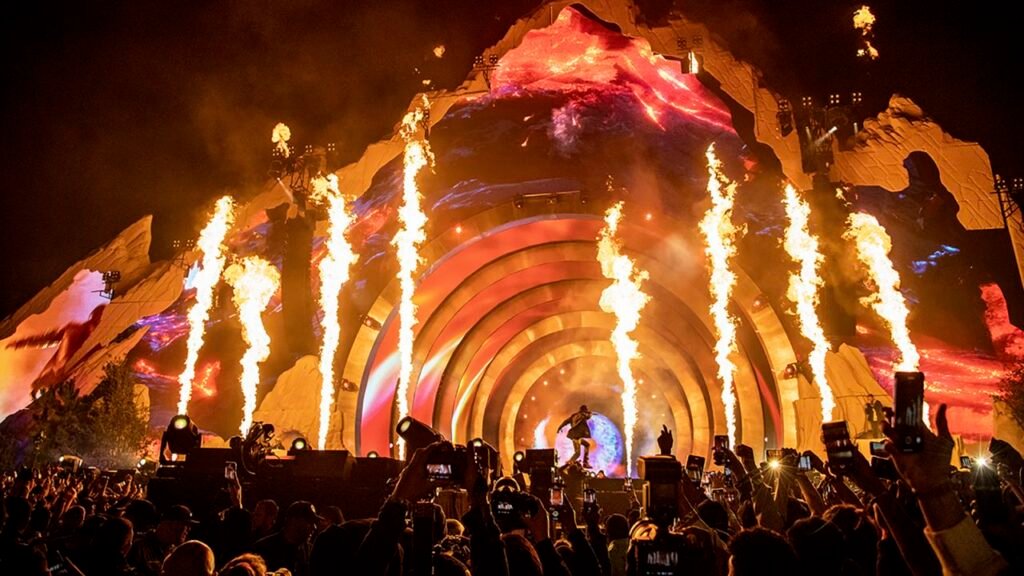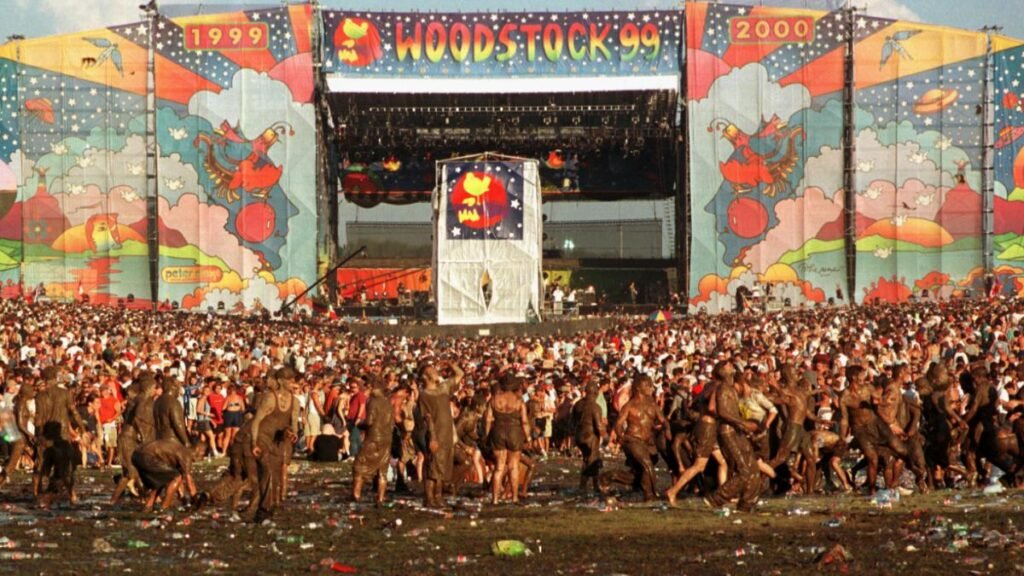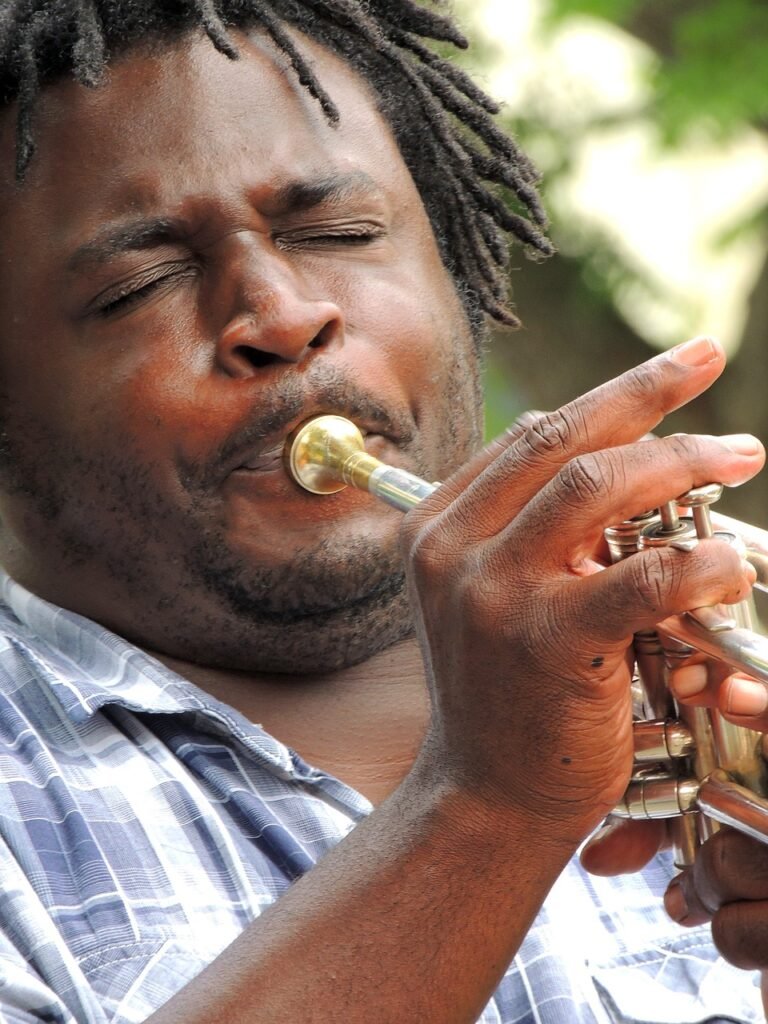Music festivals have long been celebrated as vibrant gatherings where people from all walks of life come together to share in the joy of live performances, cultural exchange, and unforgettable memories. From Coachella in California to Tomorrowland in Belgium, these festivals are not just a celebration of music; they are cultural phenomena that attract millions of people each year. However, as the popularity of these massive events grows, so too does the darker side of festival culture. In recent years, a disturbing trend has emerged: an increase in terrorism, criminal activities, and other threats at music festivals worldwide.
While festivals remain a symbol of unity and freedom, they are also becoming targets for individuals or groups looking to make a statement or advance dangerous political ideologies. In light of this growing threat, security measures at these events are being pushed to their limits, as authorities grapple with the challenges of keeping attendees safe without compromising the spirit of these iconic celebrations.
The Kneecap Controversy and Its Global Impact
One of the most high-profile incidents highlighting the intersection of music, politics, and security at festivals was the controversy surrounding the Irish rap band Kneecap at the 2025 Coachella Valley Music and Arts Festival. Known for their provocative performances and politically charged lyrics, Kneecap’s set at Coachella included chants and imagery that many listeners perceived as pro-Hamas and anti-Israel. The performance, which took place during the festival’s Easter weekend, quickly became the subject of widespread condemnation across the United States and abroad.
In response to their controversial performance, UK counter-terrorism police announced they were investigating footage from Kneecap’s past shows to determine whether any of their actions could be linked to terrorism or incitement. Calls for the band to be banned from UK festival lineups grew louder, with several political groups accusing the band of inciting hatred and violence. The incident also sparked a broader debate about the role of artists in influencing political and social movements, and whether music festivals should take a stronger stance against performances that promote violence.
This controversy is not isolated. Similar incidents at major festivals, including the 2025 Coachella Festival, have raised alarms about the security risks posed by politically charged performances. In the wake of the Kneecap incident, security at music festivals has been increasingly focused on preventing such actions, but the question remains: how can festivals balance free expression with safety?
A Surge in Crime and Arrests at Music Festivals
Aside from the political tensions that have arisen at some music festivals, there has also been an alarming increase in criminal activity at major events. The 2025 Coachella Festival, for instance, saw a 16.5% increase in arrests compared to the previous year. A total of 193 arrests were made over the two-weekend festival, covering everything from drug-related offenses to physical altercations. The festival, which attracts around 125,000 attendees, has long been a hotspot for various criminal activities, but the rising figures are a troubling sign of a deeper problem that is affecting music festivals globally.
Many of these incidents are not limited to petty crimes like theft or drug use. In some cases, violent altercations, sexual harassment, and even organized gang activity have taken place under the cover of large crowds. With the popularity of these festivals attracting not just music fans, but also individuals looking to exploit the chaos, event organizers and local law enforcement are faced with increasingly complex challenges.
The Global Threat: Terrorism at Music Festivals
Perhaps the most concerning development in recent years is the rising threat of terrorism at music festivals. Large-scale events like Coachella, Tomorrowland, and Ultra Music Festival in Miami are prime targets for terrorist groups who view these gatherings as an opportunity to spread fear and garner international attention. The very nature of these events—mass gatherings of young, diverse individuals—makes them vulnerable to attacks, whether through bombings, shootings, or other forms of violence.
Following the October 7, 2023, terrorist attack at a music festival in Israel, many countries began reevaluating the security protocols at their own festivals. The attack, which targeted attendees at an open-air rave, left dozens dead and hundreds injured. In response, festivals worldwide have heightened security measures, with some even incorporating counter-terrorism units to prevent similar tragedies.
While much of the attention has focused on large-scale events, even smaller, more niche festivals are not immune to these risks. In the UK, music festivals with more politically charged environments have come under the radar of counter-terrorism authorities. Law enforcement is now taking a more proactive approach to monitor performances that could potentially promote violence or incite radical ideologies.
What Can Be Done? Striking a Balance Between Safety and Freedom
As these security concerns continue to rise, festival organizers are being forced to rethink their approach to event management. While there is no foolproof way to eliminate all risks, several strategies are being employed to mitigate threats while maintaining the core principles of live music culture. Some of these strategies include:
- Increased Security Measures: Enhanced screening procedures at entrances, bag checks, and metal detectors are now standard at many music festivals. Drones, surveillance cameras, and even undercover officers are being deployed to monitor large crowds for signs of suspicious behavior.
- Improved Artist Vetting: In response to incidents like the Kneecap controversy, many festivals are increasing their efforts to vet artists before allowing them to perform. This process includes reviewing their past performances, lyrics, and public statements to ensure they align with the festival’s values and do not promote violence or extremism.
- Collaboration with Law Enforcement: Music festivals are working closely with local law enforcement agencies and counter-terrorism units to enhance security. This collaboration includes training festival staff to spot potential threats and coordinating with intelligence agencies to stay ahead of emerging risks.
- Community Engagement: Many festivals are focusing on creating a positive, inclusive environment for all attendees. By fostering a sense of community and mutual respect, organizers hope to prevent conflicts before they escalate and encourage festival-goers to report suspicious activity.
- Mental Health and Support Services: In the wake of the stress and trauma associated with large crowds and the potential for violence, many festivals are offering mental health resources for attendees. This includes counseling services, safe spaces, and staff trained to handle emergencies.
The Festival Radio Show: Tonight’s Special Playlist
As the music festival season continues, join us tonight for a special Festival Radio Show, where every song played will come directly from the playlists of your favorite global music festivals. We’ll take you through iconic tracks from Coachella, Tomorrowland, Glastonbury, and more, bringing the excitement and energy of these events straight to your speakers. Get ready to vibe to unforgettable live sets and feel the rush of being at the world’s most renowned festivals.
As music festivals grow in popularity, so do the risks associated with them. However, by staying vigilant, adapting security protocols, and fostering a sense of community, we can continue to enjoy these incredible experiences while keeping safety a top priority. Let’s continue to celebrate the power of music, connection, and expression, even in the face of growing challenges. Stay safe and enjoy the festival vibes!
Tune in to the Festival Radio Show tonight for the ultimate playlist from music festival legends.



